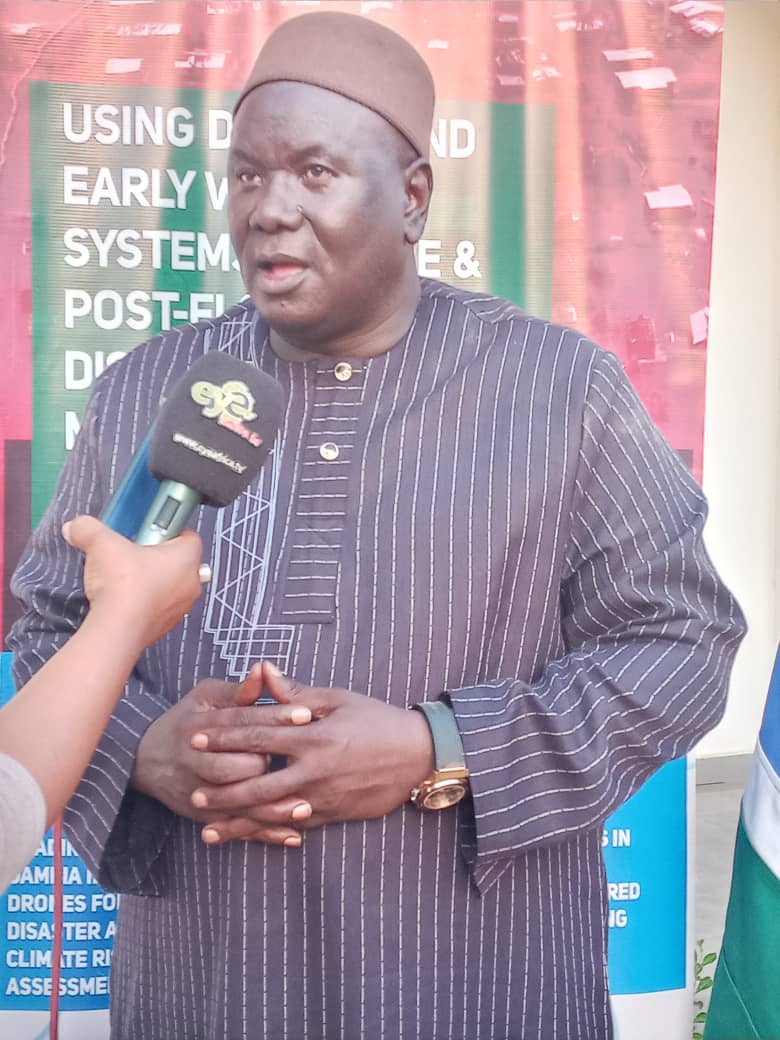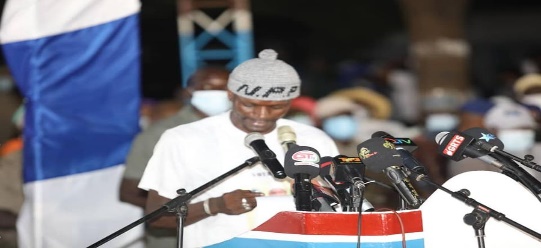By Nyima Sillah
The Executive Director of National Disaster Management Agency (NDMA), Mr. Sanna Dahaba, has said the frequency of floods in The Gambia and their attendant devasting impact on the population, infrastructure and economy have rallied local and international agencies around climate change mitigation goals.
The head of the state disaster management agency was speaking late last week when stakeholders gathered at the UN House in Cape Point to review and validate a national response plan for the 2023 rainy season.
According to Mr. Dahaba, the thinking behind the gathering was to provide a platform for technicians, stakeholders and government representatives to come together and chart a course toward a more efficient, effective and proactive flood response approach.
“Our primary objective is clear: to develop a comprehensive response plan that integrates best practices learned from the 2022 floods. By the end of this workshop, we aim to forge a united path that will enhance timely coordination, optimize emergency response measures, and promote community engagement in preparedness, response and recovery efforts in The Gambia, “he stressed.
The day-long interaction was co-organized by NDMA and Unicef and, according to the NDMA boss, it was an exhibition of the shared commitment and a sense of urgency by his agency and Unicef to tackle “the most pressing challenges facing our nation.”
“Floods have become increasingly frequent and devasting,causing significant harm to individuals, families,ourcommunities, infrastructure, and the economy,”Dahabalamented.
He recognized UNICEF’s cognizance of climate change and its impact on food and nutrition security. “Additionally, the impact of floods on vulnerable families, particularly women, and children is of particular interest to all but especially UNICEF,” he added.
While also recognizing Unicef”s support to NDMA through the provision of wash supplies and collaboration in information gathering and coordination, the NDMA executive director said the climate change agenda and humanitarian nexus have reinforced his agency’s resolve for closer collaboration to mitigate the impact of disasters.
Dahaba acknowledged that floods are indiscriminate in their path of destruction.
He continued:“It is crucial to acknowledge that floods do not discriminate; they affect everyone in their path. Therefore, inclusivity and equitable distribution of resources and aid will be paramount as we design our flood response plan.
“As we deliberate on the Gambia’s 2023 response plan,we must also keep in mind the importance of resources availability. I encourage all participants to actively engage, share expertise, and contribute to the development of pragmatic, actionable solutions. As a Government, we foster an environment of open dialogue and problem-solving during this workshop. We are not shy to be advised as to what can be done better.”
Speaking earlier, Unicef representative Mr. Armand Ghnahorethanked the Red Cross, NGOs, NDMA and UN agencies for their support to the building of people’s resilience to floods as he underscored the significance of timely disaster response.
Nutrition specialist with Unicef Yankuba Sawo underlined that better preparedness, timely and quality response call for all hands to be on deck.




